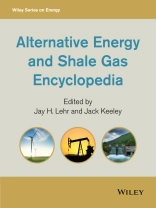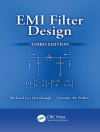A comprehensive depository of all information relating to the scientific and technological aspects of Shale Gas and Alternative Energy
- Conveniently arranged by energy type including Shale Gas, Wind, Geothermal, Solar, and Hydropower
- Perfect first-stop reference for any scientist, engineer, or student looking for practical and applied energy information
- Emphasizes practical applications of existing technologies, from design and maintenance, to operating and troubleshooting of energy systems and equipment
- Features concise yet complete entries, making it easy for users to find the required information quickly, without the need to search through long articles
Daftar Isi
INTRODUCTION: ENERGY DRIVES EVERYTHING
Howard C. Hayden xi
LIST OF CONTRIBUTORS xxv
PART I WIND
1 Acceptance of Wind Power: An Introduction to Drivers and Solutions 3
Jacob Ladenburg
2 Wind Power Forecasting Techniques 10
Michael Negnevitsky
3 Maximizing the Loading in Wind Turbine Plants: (A) The Betz Limit, (B) Ducting the Turbine 20
D. P. Georgiou and N. G. Theodoropoulos
4 Modeling Wind Turbine Wakes for Wind Farms 28
Angus C. W. Creech and Wolf-Gerrit Fr¨uh
5 Fatigue Failure in Wind Turbine Blades 52
Juan C. Marin, Alberto Barroso, Federico Paris, and Jose Canas
6 Floating Wind Turbines: The New Wave in Offshore Wind Power 69
Antoine Peiffer and Dominique Roddier
7 Wind Power—Aeole Turns Marine 80
Roger H. Charlier and Alexandre C. Thys
8 Impacts of Wind Farms on Weather and Climate at Local and Global Scales 88
Justin J. Traiteur and Somnath Baidya Roy
9 Power Curves and Turbulent Flow Characteristics of Vertical Axis Wind Turbines 104
Kevin Pope and Greg F. Naterer
10 Windmill Brake State Models Used in Predicting Wind Turbine Performance 116
Panu Pratumnopharat and Pak Sing Leung
11 Lightning Protection of Wind Turbines and Associated Phenomena 120
Petar Sarajcev
12 Wind Turbine Wake Modeling—Possibilities with Actuator Line/Disc Approaches 141
Stefan Ivanell and Robert Mikkelsen
13 Random Cascade Model for Surface Wind Speed 153
R. Baile and J. F. Muzy
14 Wind Power Budget 163
Hugo Abi Karam
15 Identification of Wind Turbines in Closed-Loop Operation in the Presence of Three-Dimensional Turbulence Wind Speed: Torque Demand to Measured Generator Speed Loop 169
Mikel Iribas-Latour and Ion-Dor´e Landau
16 Identification in Closed-Loop Operation of Models for Collective Pitch Robust Controller Design 180
Mikel Iribas-Latour and Ion-Dore Landau
17 Wind Basics—Energy from Moving Air 194
18 Wind—Chronological Development 201
PART II SOLAR
19 Solar Air Conditioning 205
Winston Garcia-Gabin and Darine Zambrano
20 Energy Performance of Hybrid Cogeneration Versus Side-by-Side Solar Water Heating and Photovoltaic for Subtropical Building Application 212
Tin-Tin Chow, Ka-Kui Tse, and Norman Tse
21 Polycrystalline Silicon for Thin Film Solar Cells 226
Nicolas Budini, Roberto D. Arce, Roman H. Buitrago, and Javier A. Schmidt
22 Solar Basics – Energy from the Sun 233
23 NASA Armstrong Fact Sheet: Solar-Power Research 241
24 Solar Thermal – Chronological Development 247
25 Photovoltaic – Chronological Development 249
PART III GEOTHERMAL
26 Geothermal: History, Classification, and Utilization for Power Generation 253
Mathew C. Aneke and Mathew C. Menkiti
27 Enhanced Geothermal Systems 265
Rosemarie Mohais, Choashui Xu, Peter A. Dowd, and Martin Hand
28 Thermodynamic Analysis of Geothermal Power Plants 290
Mehmet Kanoglu and Ali Bolatturk
29 Sustainability Assessment of Geothermal Power Generation 301
Annette Evans, Vladimir Strezov, and Tim J. Evans
30 Geothermal Energy and Organic Rankine Cycle Machines 310
Bertrand F. Tchanche
31 Low Temperature Geothermal Energy: Geospatial and Economic Indicators 318
Alberto Gemelli, Adriano Mancini, and Sauro Longhi
32 Dry Cooling Towers for Geothermal Power Plants 333
Zhiqiang Guan, Kamel Hooman, and Hal Gurgenci
33 Thermal Storage 350
Marc A. Rosen
34 Shallow Geothermal Systems: Computational Challenges and Possibilities 368
Rafid Al-Khoury
35 Geothermal Basics—What is Geothermal Energy? 390
36 Geothermal—Chronologic Development 394
PART IV HYDROPOWER
37 Sustainability of Hydropower 399
Joerg Hartmann
38 Environmental Issues Related to Conventional Hydropower 404
Zhiqun Daniel Deng, Alison H. Colotelo, Richard S. Brown, and Thomas J. Carlson
39 Social Issues Related to Hydropower 410
Joerg Hartmann
40 Safety in Hydropower Development and Operation 413
Urban Kjellen
41 Pumped Hydroelectric Storage 423
John P. Deane and Brian O’Gallachoir
42 Greenhouse Gas Emissions from Hydroelectric Dams in Tropical Forests 426
Philip M. Fearnside
43 Physical and Multidimensional Numeric Hydraulic Modeling of Hydropower Systems and Rivers 437
Timothy C. Sassaman and Daniel Gessler
44 Experimental and Numerical Modeling Tools for Conventional Hydropower Systems 448
Zhiqun Daniel Deng, Thomas J. Carlson, Gene R. Ploskey, Richard S. Brown, Gary E. Johnson, and Alison H. A. Colotelo
45 The State of Art on Large Cavern Design for Underground Powerhouses and Some Long-Term Issues 465
Omer Aydan
46 Hydroelectric Power for the Nation 488
47 Hydropower Basics—Energy from Moving Water 492
48 Hydropower—Chronologic Development 497
PART V BATTERIES AND FUEL CELLS
49 Fuel Cell Control 501
Winston Garcia-Gabin and Darine Zambrano
50 Recent Trends in the Development of Proton Exchange Membrane Fuel Cell Systems 509
Amornchai Arpornwichanop and Suthida Authayanun
51 Integrated Solid Oxide Fuel Cell Systems for Electrical Power Generation—A Review 526
Suttichai Assabumrungrat, Amornchai Arpornwichanop, Vorachatra Sukwattanajaroon, and Dang Saebea
52 Polymer Electrolytes for Lithium Secondary Batteries 547
Fiona M. Gray and Michael J. Smith
53 Recycling and Disposal of Battery Materials 566
Michael J. Smith and Fiona M. Gray
54 AC OR DC 578
M. Aram Azadpour
PART VI RENEWABLE ENERGY CONCEPTS
55 Will Renewables Cut Carbon Dioxide Emissions Substantially? 581
Herbert Inhaber
56 The Concept of Base-Load Power 585
Mark Diesendorf
57 Tidal Power Harnessing 590
Roger H. Charlier
58 The Loading of Water Current Turbines: The Betz Limit and Ducted Turbines 601
D. P. Georgiou and N. G. Theodoropoulos
59 Bottled Gas as Household Energy 606
Masami Kojima
60 Exergy Analysis: Theory and Applications 628
Marc A. Rosen
61 Global Transport Energy Consumption 651
Patrick Moriarty and Damon Honnery
62 Biomass: Renewable Energy from Plants and Animals 657
63 Planting and Managing Switchgrass as a Biomass Energy Crop 663
64 Municipal Solid Waste—Chronological Development 675
65 Ethanol—Chronological Development 677
66 Thermal Properties of Methane Hydrate by Experiment and Modeling and Impacts Upon Technology 680
Robert P. Warzinski, Isaac K. Gamwo, Eilis J. Rosenbaum, Evgeniy M. Myshakin, Hao Jiang, Kenneth D. Jordan, Niall J. English, and David W. Shaw (Public Domain)
PART VII SHALE GAS
67 Shale Gas Will Rock the World 689
Amy Myers Jaffe
68 What is Shale Gas? 692
Energy Information Administration (Public Domain)
69 Directional and Horizontal Drilling in Oil and Gas Wells 695
Public Domain
70 Hydraulic Fracturing of Oil and Gas Wells Drilled in Shale 697
Public Domain
71 Hydraulic Fracturing: A Game-Changer for Energy and Economies 700
Isaac Orr
72 Zero Discharge Water Management for Horizontal Shale Gas Well Development 720
West Virginia Water Research Institute (Public Domain)
73 About Oil Shale—What is Oil Shale? 723
Public Domain
74 Natural Gas Basics—How Was Natural Gas Formed? 725
Public Domain
75 Natural Gas—Chronological Development 732
Public Domain
76 Energy Mineral Division of the American Association of Petroleum Geologists, Shale Gas and Liquids Committee Annual Report, FY 2014 734
Neil S. Fishman, Chair
INDEX 857
Tentang Penulis
Dr. Jay H. Lehr received the nation’s first Ph.D. in Ground Water Hydrology from the University of Arizona in 1962, following a degree in Geological Engineering from Princeton University and a few years in the U.S. Navy’s Civil Engineering Corps in the Western Pacific. After Graduate school he taught both at the University of Arizona and Ohio State University before serving 25 years as head of the Association of Ground Water Scientists and Engineers where he was editor of the Journals of Ground Water and Ground Water Monitoring Review. During that period he continued to perform academic sponsored research in many areas of environmental science. Since 1994 Dr. Lehr has been Science Director of the Heartland Institute, a free market think tank located in Chicago, IL, which, through its many publications, provides objective technical information to elected officials throughout the United States.
Jack Keeley is the former Chief of Groundwater Research at the USEPA Kerr Water Resource Research Laboratory in Ada, Oklahoma.












